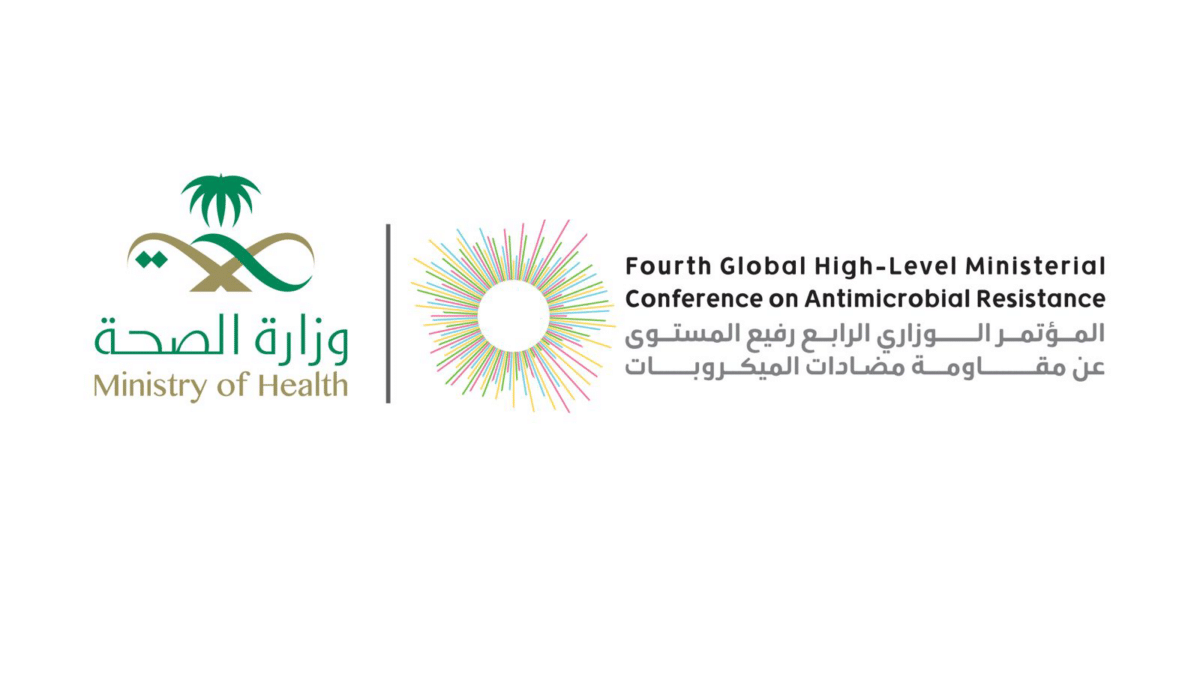The Kingdom of Saudi Arabia, represented by the Ministry of Health, is hosting the Fourth High-Level Global Ministerial Conference on Antimicrobial Resistance (AMR) in Jeddah from November 15 to 16.
The conference gathers leaders and ministers from the health, environment, and agriculture sectors worldwide. It also convenes representatives from leading international organizations and civil society with the aim of bolstering international efforts against the escalating challenges posed by antimicrobial resistance—a global challenge affecting health, economies, and societies, with lower and middle-income countries being particularly vulnerable.
H.E. Fahad bin Abdurrahman Al Jalajel, Minister of Health, said:
“The 4th AMR Ministerial Meeting provides an opportunity for the international community to commit to a strengthened common roadmap and a set of clear deliverables that will help counter the rise in drug resistance in humans and animals.
“AMR threatens people of all ages, impacting human, animal, and plant health, as well as the environment and food security. To successfully contain AMR, we must adopt a comprehensive One Health approach that systematically addresses the obstacles hindering progress. This includes sharing best practices, innovative funding initiatives, and developing new tools to combat AMR.
“The Jeddah Meeting is a crucial opportunity to strengthen our collective global response to the risks of this growing, ‘silent pandemic’.”
Attending the Jeddah Meeting, WHO Director-General Dr Tedros Adhanom Ghebreyesus, said:
“Antimicrobial resistance is not a risk for the future, it’s here and now, making many antibiotics and other medicines on which we depend less effective, and making routine infections harder to treat, debilitating or deadly.
“I commend the Kingdom of Saudi Arabia for its leadership and for hosting this important ministerial conference on AMR. We must act now, working together across a range of sectors - from health to environment to agriculture – to stop the spread of antimicrobial resistance and protect the medicines that protect us”.
The Jeddah Meeting will facilitate the coordination of global efforts across diverse ecosystems, including human, animal, and agricultural health, as well as environmental protection.
The Executive Director of the United Nation Environment Programme, Inger Andersen, who is also attending the Jeddah Meeting, said:
“The environment plays a key role in the emergence, transmission and spread of AMR. To reduce the burden of AMR and its risks, we must urgently strengthen and increase environmental interventions, having prevention at the core of the action. Indeed, the Jeddah Declaration calls for immediate action to protect the environment as part of our AMR response.
“We call on all stakeholders to come together and scale up preventative actions to reduce effluents and waste from pharmaceutical production, agrifood, healthcare facilities, and municipal systems.”
This year’s conference theme is ‘From Declaration to Implementation – Accelerating Actions Through Multisectoral Partnerships for the Containment of AMR’.
AMR is one of the top global public health and development threats, already estimated to cause over one million deaths annually—more than HIV/AIDS and malaria combined—and contributing to a further 5 million deaths each year.
Beyond health impacts, AMR is already affecting economies, with antimicrobial resistance projected to reduce global GDP by almost 4% by 2050 and cost the global economy an estimated $100 trillion.
The meeting will address priorities including surveillance and stewardship, capacity building, funding provision, governance, innovation, research and development. This reflects the Kingdom’s commitment to fostering international cooperation, tackling global health challenges, and emphasizing its leadership role in supporting global health security.
Lo más visto
